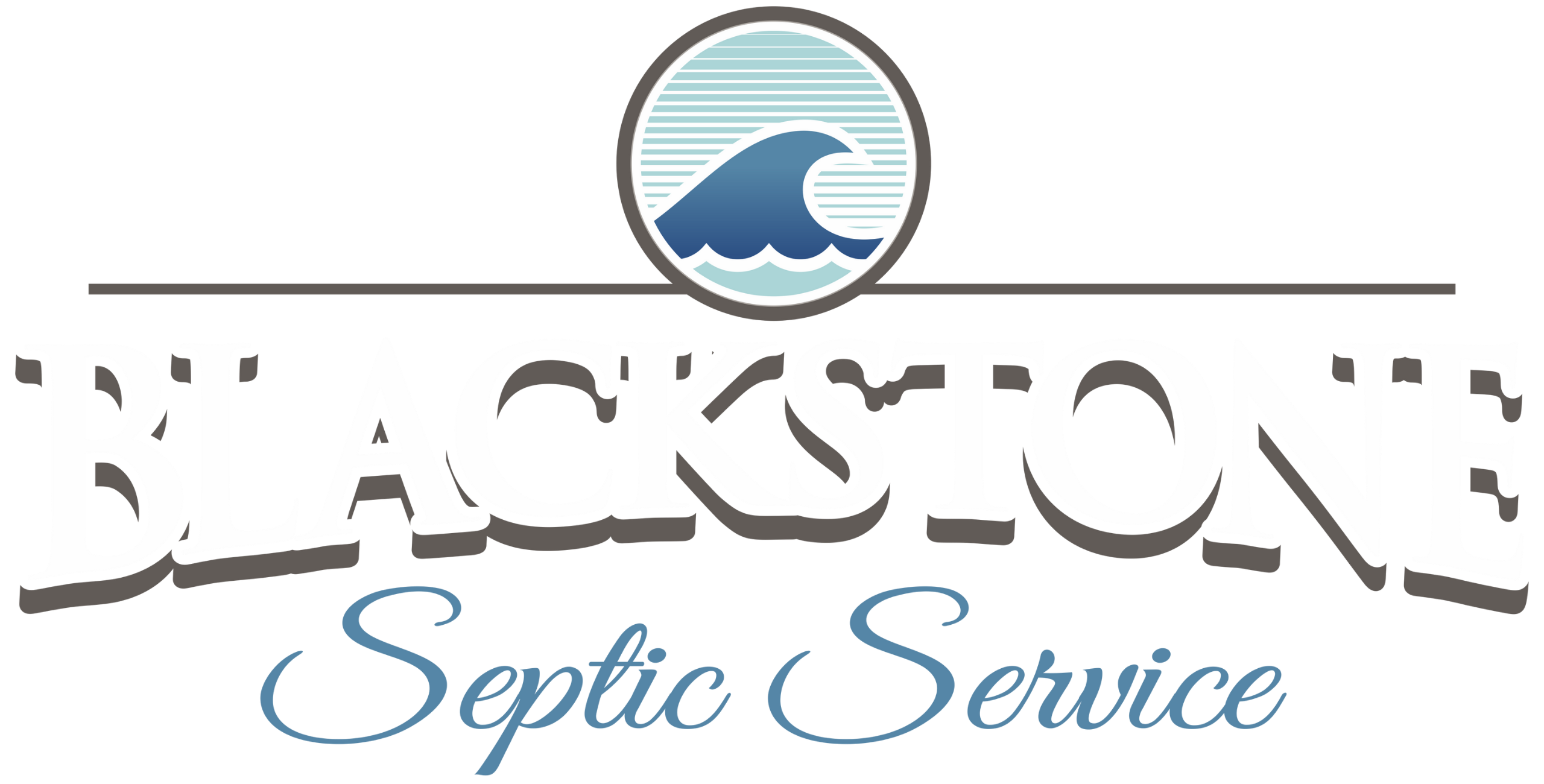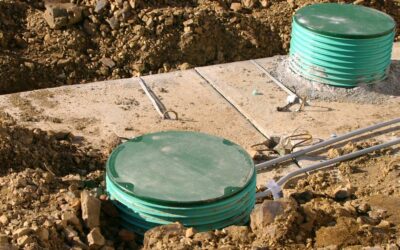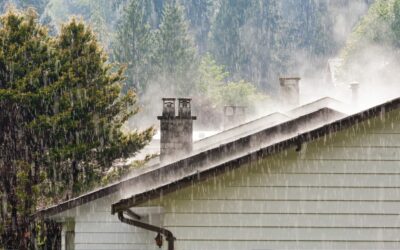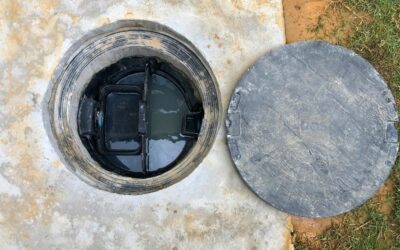Septic systems are a crucial part of home maintenance. They manage waste in homes that are not connected to the municipal sewer line. Just like any other part of your home, your septic system requires regular maintenance to function efficiently. Understanding what substances are safe to introduce into your septic system is key to its longevity and health.
To maintain a healthy septic system, it’s crucial to avoid harsh chemicals like bleach and chemical drain cleaners, which can harm the beneficial bacteria in septic tanks and wreak havoc on the drain field. Instead, opt for natural cleaners like baking soda and vinegar, both apple cider and white vinegar are safe for septic systems.
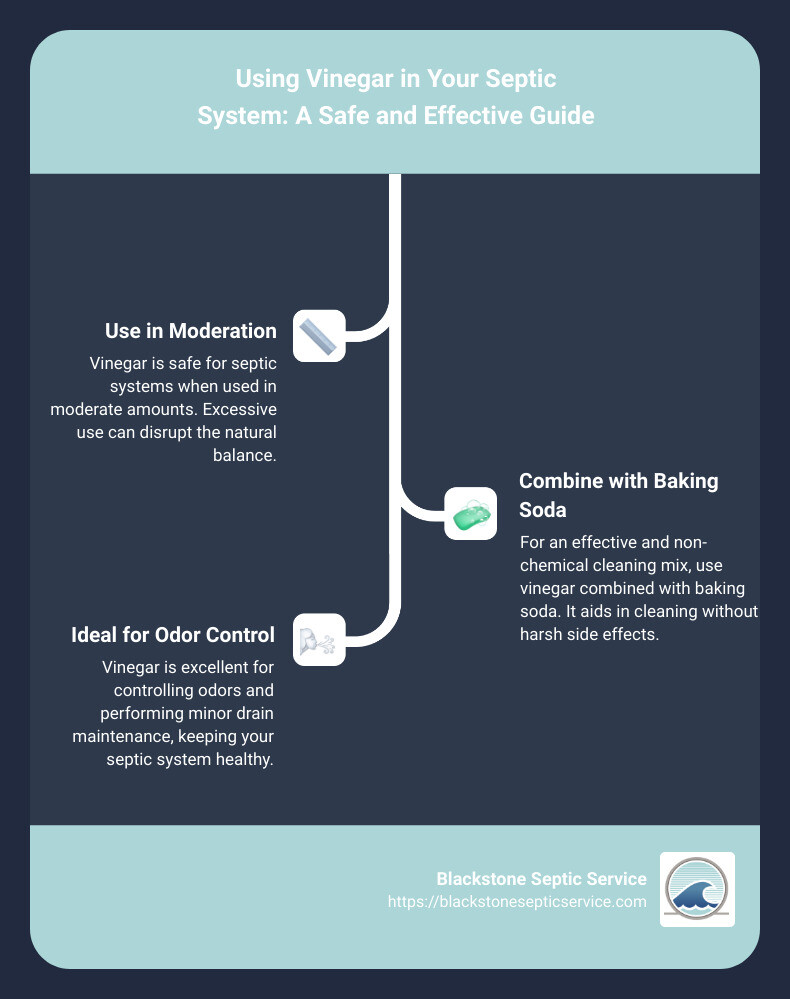
Table of Contents
Maintaining a healthy septic system goes beyond just occasional check-ups; it’s also about making informed choices about what goes down your drains. Vinegar, due to its mild acidity and natural composition, fits into the category of septic-safe products when used properly.
Let’s dive deeper into the specifics of vinegar use in the context of septic system maintenance and care.
Is Vinegar Safe for Septic Systems?
The short answer is yes, vinegar, along with baking soda, serves as a natural cleaning agent that is eco-friendly and effective for various household cleaning tasks, including drains and toilets, without harming septic systems. This staple kitchen ingredient can indeed be a part of your cleaning routine without harming the delicate balance within your septic tank.
But let’s break down why that is, focusing on vinegar’s properties, its effect on acetic acid levels, and the balance of bacteria in your system.
Vinegar Properties
Vinegar is essentially a diluted solution of acetic acid and water. This mild acid is what gives vinegar its cleaning power. Unlike harsh chemical cleaners that can harm your septic system, vinegar is mild enough not to disrupt the essential bacterial balance within your tank.
Acetic Acid
The acetic acid in vinegar is beneficial for a couple of reasons. First, it’s capable of breaking down some types of organic matter, which means it can help keep your drains clear without the use of harsh chemicals. Second, it doesn’t kill the beneficial bacteria that your septic system relies on to function correctly.
However, it’s important to note that while vinegar’s acetic acid is beneficial in small quantities, large amounts can alter the pH of your septic tank. An imbalanced pH can inhibit the bacteria’s ability to break down waste, leading to potential problems down the line.
Bacterial Balance
Your septic system’s efficiency hinges on a delicate balance of bacteria. These bacteria are responsible for breaking down the solids in your tank, turning them into liquids that can be safely dispersed into the drain field. Vinegar, in moderate amounts, does not harm these bacteria. In fact, it can help by breaking down substances like soap scum and grease that might otherwise clog your pipes and lead to septic system issues.
Moderation is Key
The overarching theme when it comes to vinegar and septic systems is moderation. Small amounts, such as the residue from a vinegar-based cleaning solution rinsed down a sink, won’t harm your system. In fact, it can be part of a healthy septic maintenance routine. However, pouring large amounts of vinegar directly into your system with the intent of treating a problem or as a heavy-duty cleaner is not recommended.
In summary, vinegar can be a septic-safe cleaning agent when used correctly. While it offers benefits like soap scum and grease removal without harming beneficial bacteria, it should not be used excessively. Maintaining the right balance will help ensure your septic system continues to function effectively, keeping your home’s wastewater treatment process running smoothly.
The Impact of Vinegar on Septic Systems
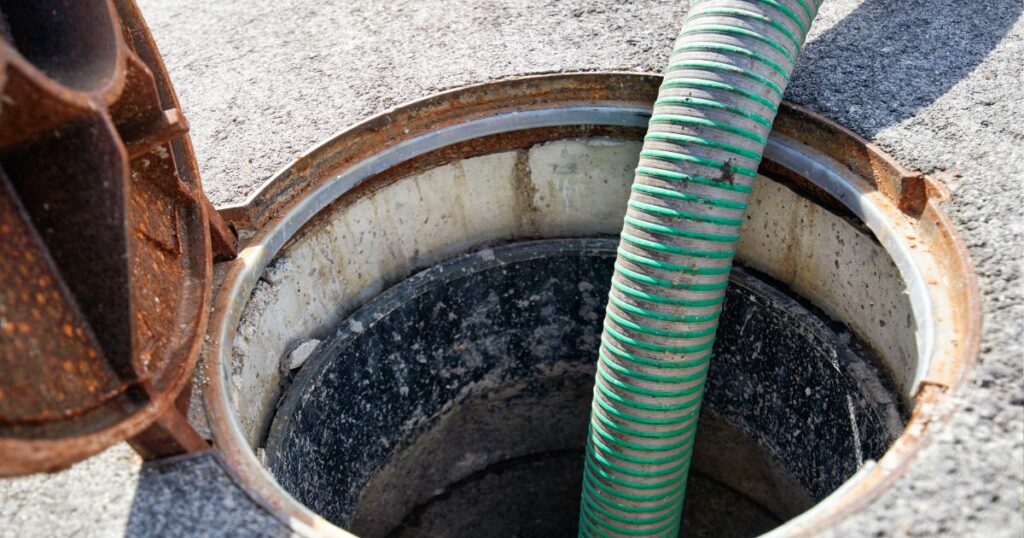
pH Balance
Vinegar, being a form of acetic acid, has the potential to alter the pH level of your septic system. A balanced pH is crucial for the health and efficiency of the bacterial ecosystem within the tank. These bacteria are the workhorses that break down waste. If the pH level swings too far in either direction, bacterial activity can slow down or even stop, leading to system inefficiencies or failures. However, when used in moderation, vinegar does not significantly disrupt this balance, allowing the system to function as intended.
Bacterial Health
The beneficial bacteria in your septic system thrive in a specific environment. Interestingly, vinegar, despite being acidic, does not pose a threat to these microorganisms when used in reasonable amounts. In fact, vinegar can aid in maintaining a healthy bacterial balance by cleaning without introducing harmful chemicals that could be detrimental to these essential bacteria. It’s a gentle alternative to harsh chemical cleaners that can kill off the bacteria needed for waste decomposition.
Soap Scum and Grease Removal
One of the notable benefits of vinegar in septic systems is its ability to tackle soap scum and grease. These substances can clog pipes and lead to inefficiencies or blockages in the system. Vinegar’s natural acidity helps break down these build-ups, ensuring smooth flow through pipes and reducing the risk of clogs. This attribute makes vinegar a valuable tool in septic system maintenance, promoting the system’s overall health and longevity.
To sum up, vinegar can have a positive impact on septic systems when used wisely. It supports a healthy bacterial ecosystem, does not significantly alter the system’s pH balance, and assists in managing soap scum and grease build-ups. The key takeaway is to use vinegar judiciously. The following section will delve into practical advice on how to incorporate vinegar into your septic system maintenance routine safely.
Continuing our exploration, we’ll discuss How to Use Vinegar Safely in Your Septic System, offering insights into practical and effective ways to leverage vinegar’s benefits without putting your system at risk.
How to Use Vinegar Safely in Your Septic System
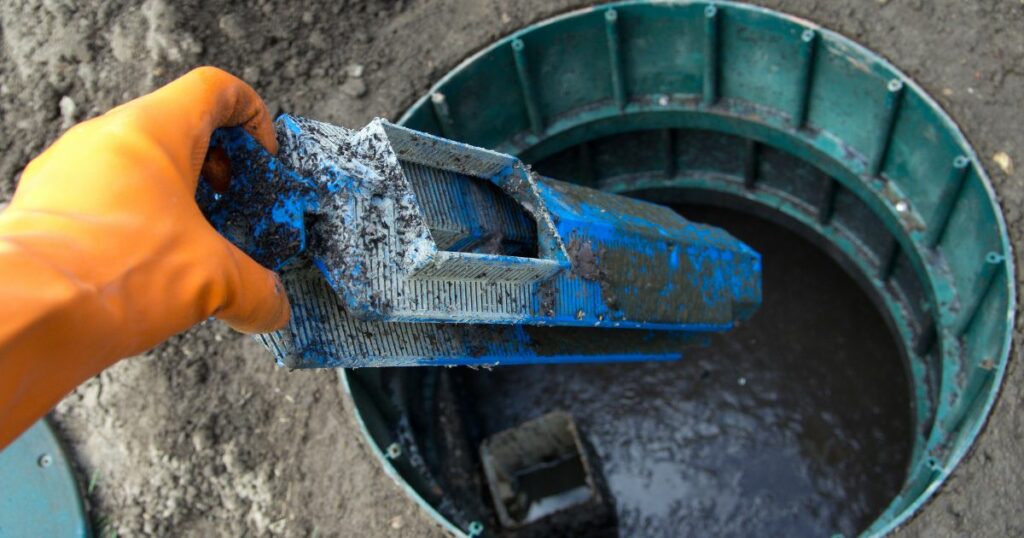
Vinegar is a versatile cleaner that, when used correctly, can be a septic system’s friend. However, the operative word is moderation. Here’s how to harness the power of vinegar without disrupting the delicate balance of your septic system.
Moderation is Key
The first rule of using vinegar in septic systems is moderation. While vinegar is beneficial for breaking down organic materials, excessive amounts can disrupt the balance of bacteria critical for a healthy septic system. A good guideline is to limit the use of vinegar to a few cups per week as part of your cleaning routine.
Cleaning Recipes
Vinegar can be part of several effective cleaning recipes that are friendly to your septic system. Here are a couple of simple ones:
- All-Purpose Cleaner: Mix equal parts water and vinegar in a spray bottle. This solution is perfect for cleaning countertops, windows, and bathroom surfaces. For a fresh scent, add a few drops of essential oil like lavender or lemon.
- Drain Maintenance: Once a month, pour one cup of vinegar down your drains followed by one cup of hot water. This will help maintain clear pipes and reduce odors without harming the bacteria in your septic system.
Drain Maintenance
Regular maintenance is crucial for keeping your septic system running smoothly. Vinegar can play a role in this by helping to keep drains clear without the use of harsh chemicals. Here’s how:
- Weekly Flush: Pour a mixture of one cup of vinegar and half a cup of baking soda down each drain once a week. Let it fizz for a few minutes, then flush with boiling water. This natural reaction helps break down fats, oils, and organic matter that can cause clogs.
- Toilet Cleaning: Cleaning your toilet with vinegar is also a safe practice. Pour one cup of vinegar into the toilet bowl, let it sit overnight, then scrub with a brush and flush in the morning. This not only cleans but helps maintain the health of your septic system.
- Garbage Disposal Care: If you have a garbage disposal, occasionally grind ice cubes made of vinegar. This sharpens the blades and keeps the unit clean without damaging your septic system.
By following these guidelines, you can use vinegar safely in your septic system. The goal is to maintain the system’s health through regular, non-disruptive cleaning practices. For any major concerns or maintenance, it’s always best to consult with a professional service like Blackstone Septic Service. They can offer tailored advice and services to ensure the longevity and efficiency of your septic system.
Alternatives and Complementary Practices for Septic System Health
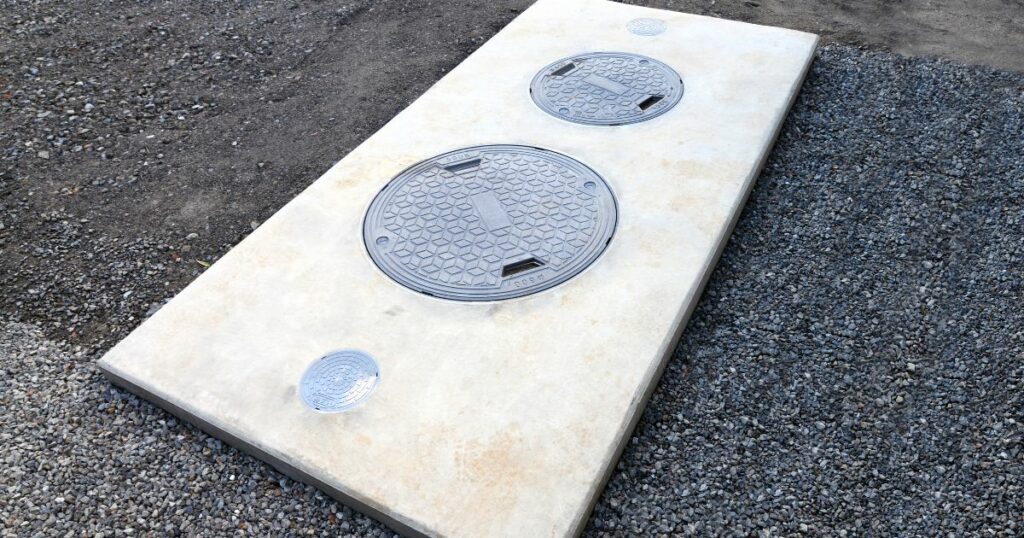
Keeping your septic system healthy doesn’t stop at being cautious with what you pour down the drain. There are several safe and effective alternatives to chemical cleaners that can help maintain the balance and efficiency of your septic system. Let’s dive into some of these alternatives:
Baking Soda
Baking soda is a gentle yet powerful cleaning agent that can help maintain the pH balance in your septic system. Unlike harsh chemicals, it won’t disrupt the bacterial balance that’s crucial for your system’s functionality. You can use baking soda to:
- Clean drains and eliminate odors by pouring a cup down the drain, followed by warm water.
- Freshen up your dishwasher and washing machine by running an empty cycle with a cup of baking soda.
Castile Soap
Castile soap is a versatile, vegetable-based soap free from animal fats and synthetic ingredients, making it safe for your septic system. Its natural composition means it breaks down easily without harming the bacteria in your septic tank. Use Castile soap for:
- General household cleaning, from dishes to floors.
- Personal care, as it’s gentle enough for skin and hair.
Septic-Safe Cleaners
When shopping for cleaners, look for products labeled as septic-safe. These products are designed to be effective without containing harsh chemicals that can disrupt your septic system. The key is to read labels carefully and choose products that support the health of your septic system.
Avoiding Harsh Chemicals
Harsh chemicals can kill the beneficial bacteria in your septic tank, leading to blockages and system failures. To avoid this:
- Steer clear of bleach and ammonia-based cleaners.
- Avoid pouring oil, grease, or petroleum-based products down the drain as they can clog your system.
- Limit the use of garbage disposals as they can introduce fats, oils, and solids that are hard for your system to process.
Practical Tips
- Moderation is key: Even septic-safe products can cause issues if used in excess. Use all cleaning agents sparingly.
- Natural solutions: For drain maintenance, a mixture of vinegar and baking soda can help clear minor clogs without damaging your septic system.
- Professional advice: For specific concerns, always consult with a septic system professional like Blackstone Septic Service. They can provide guidance tailored to your system’s needs.
By incorporating these alternatives and practices, you can ensure your septic system remains healthy and efficient. The goal is to prevent damage before it happens, saving you from costly repairs down the line. For any uncertainties or when it’s time for regular maintenance, reaching out to professionals like Blackstone Septic Service is always a wise decision.
Conclusion
Taking care of your septic system is not just about what you put into it, but also about how you maintain it over time. Yearly maintenance is crucial to ensure that your septic system remains healthy and functional for years to come. Regular check-ups can prevent major issues before they arise, saving you from costly repairs or replacements.
A well-maintained septic system is key to a happy and healthy home. By incorporating natural cleaning solutions like vinegar and baking soda into your maintenance routine, and by scheduling yearly check-ups with professionals, you’re taking significant steps towards the longevity of your septic system.
Contact us today at Blackstone Septic Service, we understand the importance of maintaining your septic system properly. We’re here to provide you with comprehensive septic services, from routine maintenance to emergency repairs. Our team of experts is equipped with the knowledge and tools to ensure your septic system is in top condition. Whether you’re looking for advice on using vinegar safely in your septic system or need a professional inspection, we’ve got you covered.
For more information on how we can help keep your septic system running smoothly, visit our septic services page. Let’s work together to ensure the health and efficiency of your septic system for years to come.
Frequently Asked Questions about Vinegar and Septic Systems
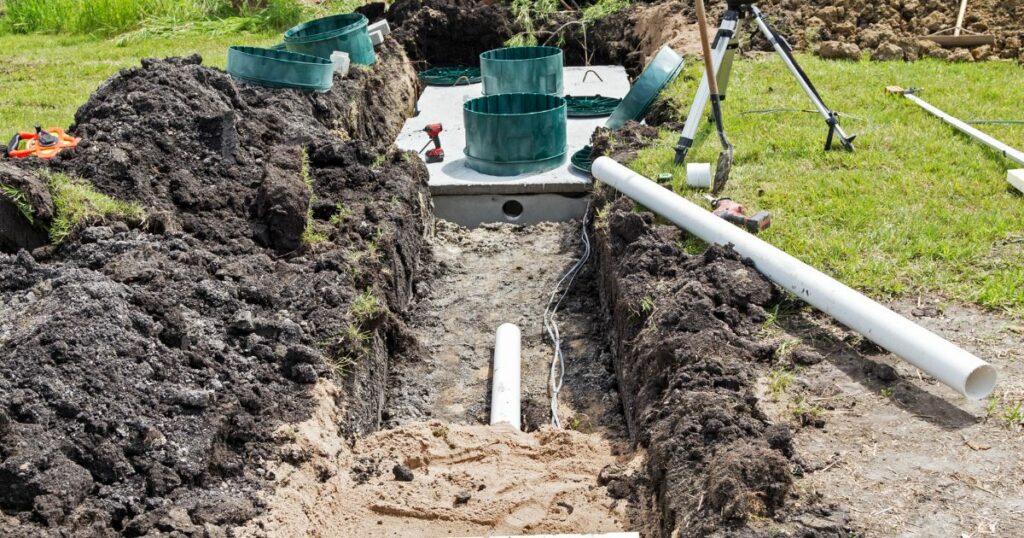
Navigating the dos and don’ts of septic system maintenance can be tricky. Let’s clear up some common questions about using vinegar in septic systems.
Can I clean my toilet with vinegar if I have a septic tank?
Absolutely, yes. Vinegar is a safe and effective cleaner for your toilet, even with a septic system. It’s milder than many commercial cleaners, which can harm the good bacteria in your septic tank. A simple mixture of vinegar and baking soda can clean your toilet without disrupting your septic system’s balance. This method avoids the harsh chemicals that could damage the bacteria your system relies on.
Does white vinegar harm septic tanks?
No, white vinegar does not harm septic tanks when used in moderation. Vinegar is a natural product that can actually be beneficial for your septic system. It can help in breaking down organic matter and controlling the growth of harmful pathogens without killing the good bacteria necessary for your septic system to function properly. The key is to use it sparingly and not in excessive amounts, which could disrupt the system’s balance.
What does baking soda do to a septic tank?
Baking soda, when used in conjunction with vinegar, can be beneficial for your septic system. It acts as a gentle cleaning agent that can help maintain the pH balance in your septic tank, ensuring the bacteria that break down waste remain healthy and effective. Baking soda can also help in controlling odors, making it a great addition to your septic system maintenance routine.
Our Content
Our experienced septic tank specialists have carefully reviewed and edited all of the content to ensure that it meets our high standards for quality and accuracy. At Blackstone Septic Service, our mission is to provide unparalleled expertise and service excellence in the realm of septic system care. With a dedicated team of professionals committed to delivering top-tier septic smells solutions, we specialize in comprehensive services such as routine maintenance of clogged drains, septic tank pumping, proper grease trap maintenance, clean grease traps, and new system installations. Blackstone Septic Service is a family-owned company with highly trained technicians, with over 75 years of experience in septic tanks.
